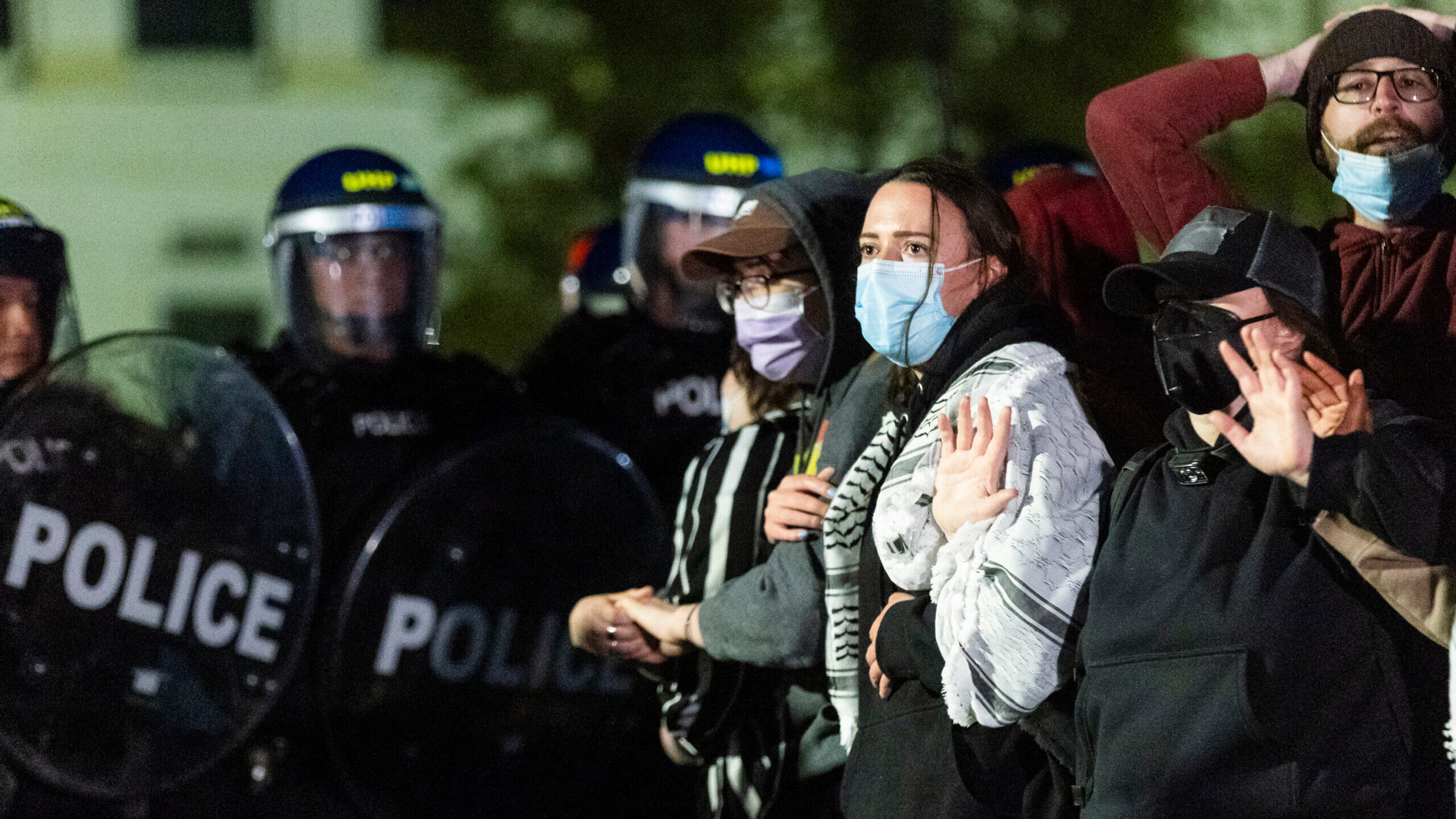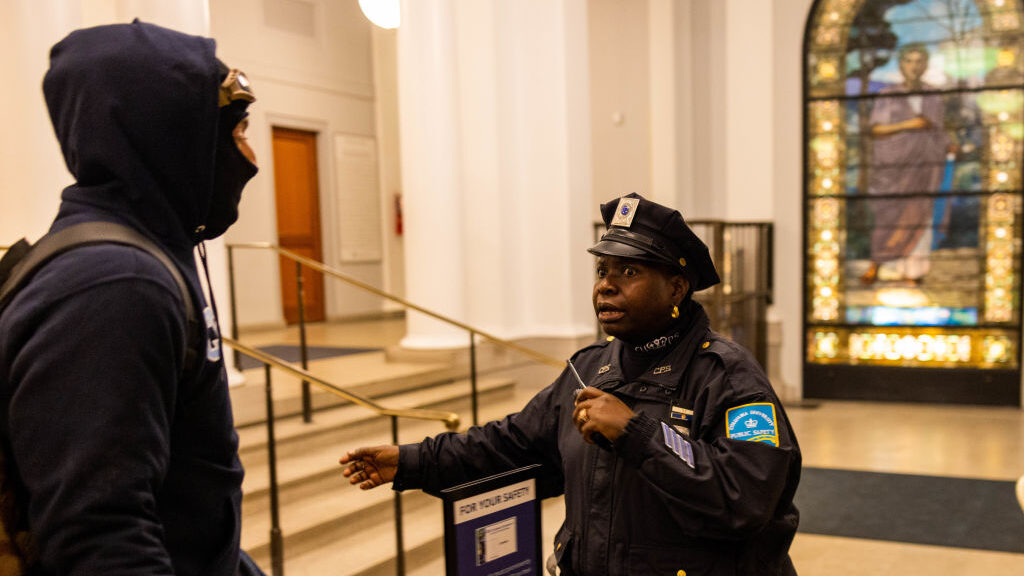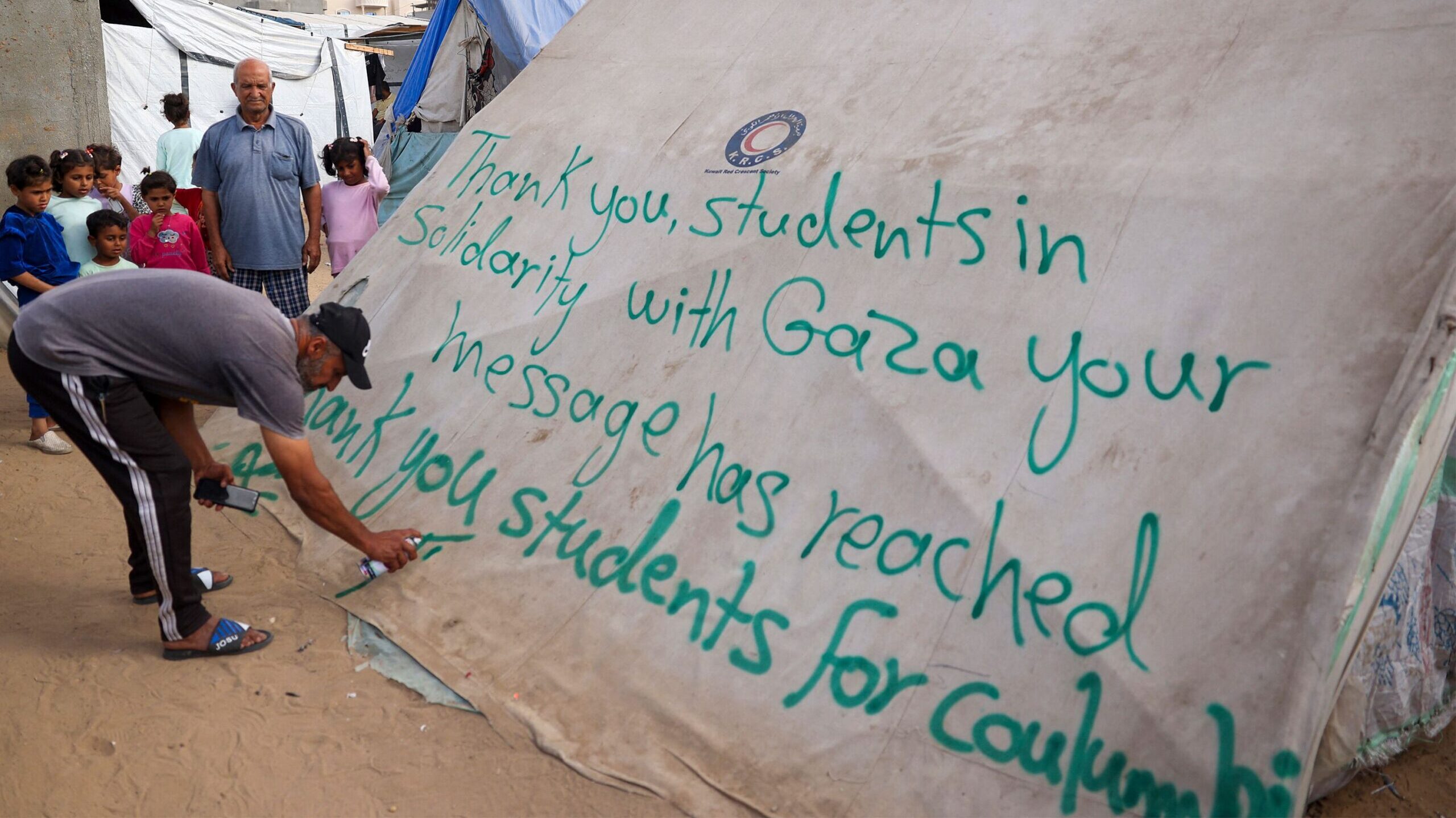How to protect your mental health while keeping tabs on the Israel-Hamas war
Oct 14, 2023, 10:03 AM | Updated: Nov 30, 2023, 5:45 pm
(CNN) — As the situation in Israel and Gaza continues to unfold, many people far from the conflict are nonetheless exposed to countless images, stories and sounds of conflict via television and radio news reports, newspaper and digital stories, and of course social media.
And this is taking a toll on all of us, including our children. The American Psychological Association released a statement this week warning that consuming violent and traumatic news can in and of itself negatively affect our mental health.
“Psychological science tells us that fear, anxiety and traumatic stress have long-term effects on health and well-being. These impacts are also being felt by people around the world who have families and friends in the region, as well as those concerned about the effects of war everywhere,” it says.
So how do we stay informed and stay connected while protecting our mental health and that of our children? This is an issue that has come up over and over in the context of a long list of events such as school shootings, mass shootings, the January 6 insurrection at the US Capitol, climate change, incidents of police brutality, the Covid-19 pandemic, the September 11 terrorist attacks and natural disasters such as hurricanes and wildfires.
CNN Chief Medical Correspondent Dr. Sanjay Gupta reached out to Dr. Gail Saltz for advice on how to navigate this fine line for an upcoming episode of his podcast, “Chasing Life.” Saltz is a clinical associate professor of psychiatry at the New York Presbyterian Hospital and Weill Cornell Medical College and the host of the podcast “How Can I Help?”
Saltz said that images, in particular, are problematic because they give the impression that the danger is close. “Visual images, moreso than something that you heard or something that you read, tend to stick in your mind rather like a movie. And they can become intrusive images that you can’t get out of your mind,” she explained.
“And this is the problem people are having now. They see something; it’s horrific — it’s beyond the usual human experience of seeing human-to-human violence — in such a way, and it intrudes in their mind such that they can’t concentrate at work, such that they can’t fall asleep at night. And it’s distressing. And that causes an overall arousal in the brain and then in the body,” she said.
Saltz explained that as a physiologic response to those images and stories, the sympathetic nervous system kicks into gear. “That sympathetic nervous system says, ‘Danger! Danger!’ And you become jittery, anxious.” It’s well-documented that if you stay anxious for a long time, you start to feel sad, which can lead to depression, she says.
And it’s very easy to stay anxious for a long time amid this tech and media landscape.
“This recent ability to see these terrible visual images — which is really unlike 10 years ago, 20 years ago — and to have them be a constant feed, constantly available, I think is really harmful, particularly for children but also for adolescents and also for adults,” she pointed out.
Saltz said some people are more vulnerable than others to developing an acute stress reaction or even post-traumatic stress disorder with the constant stream of images and stories.
“People who are in closer proximity to the actual events – obviously, if you’re there or your family’s there or this touches you in some more direct way. But even people who are ripples out from this can develop [deeper issues], particularly people who either have a prior mental health issue, like an anxiety disorder or a mood disorder, and people who have suffered [any kind of] trauma in their past,” she said.
So, what can you do to take care of your and your family’s mental health? Saltz offers these tips:
Put your family on a media diet
“First and foremost would be limit your news intake and your social media,” she said. “I’m not saying, ‘Hey, crawl under a rock and have no idea what’s going on.’ I’m not advocating for that, but I am advocating for perhaps not scrolling through on the social media where there’s no trigger warning. … it’s just a constant diet of really upsetting images.”
Saltz recommends limiting your sources to one or two trusted media outlets, as well as limiting the time you spend on news to 30 minutes a day. “And not having that 30 minutes be anywhere close to bedtime, because it inevitably stirs people up, and they cannot sleep. And the lack of sleep makes them more anxious the next day, so it becomes a vicious cycle.”
Limiting your child’s access to social media may be challenging, but it is doable to some degree. You can get more guidance and tips here.
Don’t keep kids in the dark
Saltz said it’s also very important to explain to your kids in an age-appropriate way what is happening.
“Talk to your children and tell them what they’re asking, because what they’re imagining could be even worse, even scarier if you’re not being smart,” she said. “You don’t have to be graphic, but being reasonably honest with them can be important because our fantasy life can be pretty horrendous, too.”
Saltz said it’s important for parents to start the conversation. “Because you want to be the trusted source, and you want them to be able to talk to you about it. And you do that by basically saying, ‘What have you heard? What do you know? What do you feel about what you’ve heard and what you know?’ And let them tell you, then let them ask you questions.”
Speaking of trusted sources, Saltz said it’s vital to help your kids learn to identify them.
Help children understand “that just because somebody said it so, doesn’t make it so. That you have to really look at sources,” she said, noting that this suggestion goes for news, medical advice and other information. “How can you identify a trusted source? And that if you see something that you really question, that that’s reasonable, and you can investigate that further by cross-checking.”
You can get more tips on how to talk to your children here and here.
Tune into your (and your kids’) feelings
“Tune in to symptoms you might be having so that you can address them,” Saltz said.
She noted that all psychiatric diagnoses really are an extension of potentially normal feelings that have risen to the level of causing dysfunction. “Everybody gets anxious sometimes. And when things are difficult and stressful, like they are now, they get more anxious, and that is normal,” she explained.
“But when you are so anxious that you’re unable to concentrate … your work performance suffers, you can’t read a book because you can’t get through the book, you can’t go to sleep at night because you’re sitting up worrying, your appetite is affected. … [When the level of anxiety] affects your functioning in one or more important arenas of your life — work, school, relationships — then that has risen to the level of a something that needs treatment, something that needs attention.”
Saltz said that the symptoms may be different in children.
“In children, anxiety disorders and mood disorders can look very different. Kids can be suffering with depression and they don’t look depressed all the time. They have episodes of feeling weepy and very upset or highly irritable and expressing sadness. But then they might have other times where they look happy, which is why depression is often missed in children and adolescents,” she explained.
Kids are also more likely to “somatize” their psychological distress, Saltz said. For example, anxiety may show up as a stomachache or a headache. “Kids are more likely to manifest that way. … They’ve come in to their pediatrician with a symptom that seems like it needs the pediatrician, when indeed, they’re suffering from an anxiety disorder.”
She points out that 25% of kids will develop an anxiety disorder at some point in their adolescence, a figure that is unrelated to world events.
“The amazing and important thing to know about that is that they are treatable; they don’t require a long period of treatment. Without treating your child, they sort of can fall off the developmental curve for a little while. … But by 10 or 12 sessions, you can put them right back on their curve. And that’s why it’s so important to intervene early and for parents to understand that these are common.”
Build up your stress-busting toolkit
When stress and fear fire up our amygdala, the part of the brain that controls our emotional response, Saltz, borrowing a term from dialectical behavior therapy, said we’re not in our “wise mind.”
“But we can ‘become in a wise mind’ by doing physiologic things to calm our system down. And those are things like adding five minutes of paced, deep breathing to your morning and to your evening, or progressive muscle relaxation,” she said.
Another activity that has been shown to reduce stress is taking a walk, preferably out in nature.
“There are many things to bring down the physiologic anxiety, which can take on a life of its own, so that you can make better choices for your mental health and for your family’s mental health,” she said.
Tap into other relaxing meditations here.
Tap into the goodness of life
It may sound obvious, but participate in activities that are enjoyable.
“Do things that make you feel better,” Saltz said. “That could be actually watching something positive to counter some of the negative. It could be doing something to help or that feels like it’s helpful. … Anything that you feel helps the situation in some way is a great antidote.”
And finally …
Understand that you are not alone
Know that you’ve got a lot of company in feeling stressed-out and anxious, Saltz said. Connect with family, friends or like-minded community, or if you feel that you need additional help, reach out to a mental health professional.
“I think everybody is feeling pretty, pretty stressed right now. But while you’ve got a lot of company, try to steer clear of catastrophizers in your life — people who really see the most doomful situation. … Probably, including them in these conversations will ratchet you up.”
Tune in Tuesday to hear the full conversation between Dr Gail Saltz and Dr. Sanjay Gupta on the “Chasing Life” podcast, available here.
The-CNN-Wire
™ & © 2023 Cable News Network, Inc., a Warner Bros. Discovery Company. All rights reserved.












